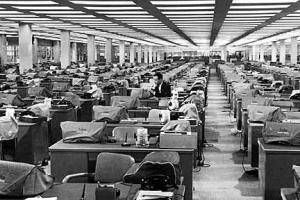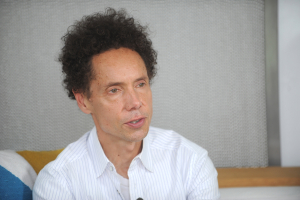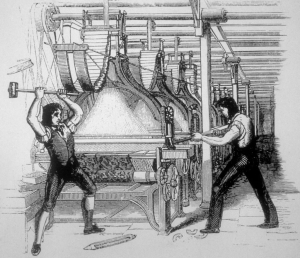 Malcolm Gladwell pulled the latest edition of his Revisionist History podcast, called Confessions of a CEO, after an outcry over his attitude toward working from home.
Malcolm Gladwell pulled the latest edition of his Revisionist History podcast, called Confessions of a CEO, after an outcry over his attitude toward working from home.
He’s against it.
I have worked from home for nearly 40 years. My wife has done it full-time since the pandemic started. That doesn’t mean I don’t understand where he’s coming from.
There are many jobs you can’t do from home. Factory jobs. Food jobs. Lab jobs. If you’re the one taking care of the cloud, you must go to the data center.
But for what the 20th century called “office work,” it’s stupid. We have laptops. We have phones. Who cares where they are? If you must bring people together, for team-building or making decisions, you have an obligation to make it fun, and make it rare. If you want people to come into your store, make sure you deliver personal service and a buying experience they can’t get online.
 “Modern” office buildings aren’t built for that. Tough. Change them. Adapt them to what they’re being used for. Turn the rest into apartments.
“Modern” office buildings aren’t built for that. Tough. Change them. Adapt them to what they’re being used for. Turn the rest into apartments.
The pandemic has even changed broadcasting, an area I once thought immune. News show “guests” are still appearing from their living rooms, bedrooms, or kitchens. Others are being interviewed from in-office studios. Even after the pandemic, they’re not going back. Why should they? It’s the message that matters, not physical presence.
Now consider the cost. My dear heart lost 4 waking hours of every day to her commute. That’s an hour to get ready and 90 minutes each way. She could read on public transit but consider the added burden on drivers. Gas, your full attention, stress. For what? Not to mention dry cleaning.

As reporters and as editors our job is to deliver the unexpected. That has always been Gladwell’s mission, whether it was writing for books, magazines, or creating his own company, Pushkin Industries. But if you’re going to be about the unexpected, don’t fall into the expected traps. Don’t be defensive. Own your mistakes. Don’t expect others to be conventional when you’re anything but. Understand that fame can turn on you in a heartbeat and be ready for it. Don’t take yourself so seriously.
I remain a big Malcolm Gladwell fan.









